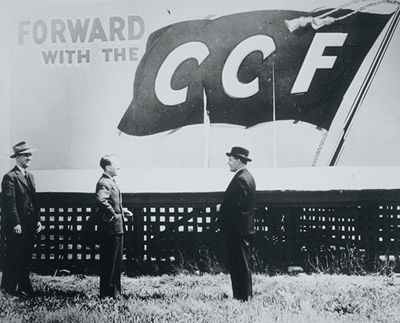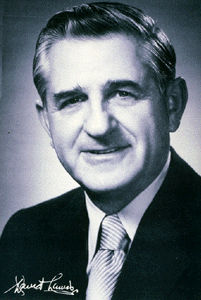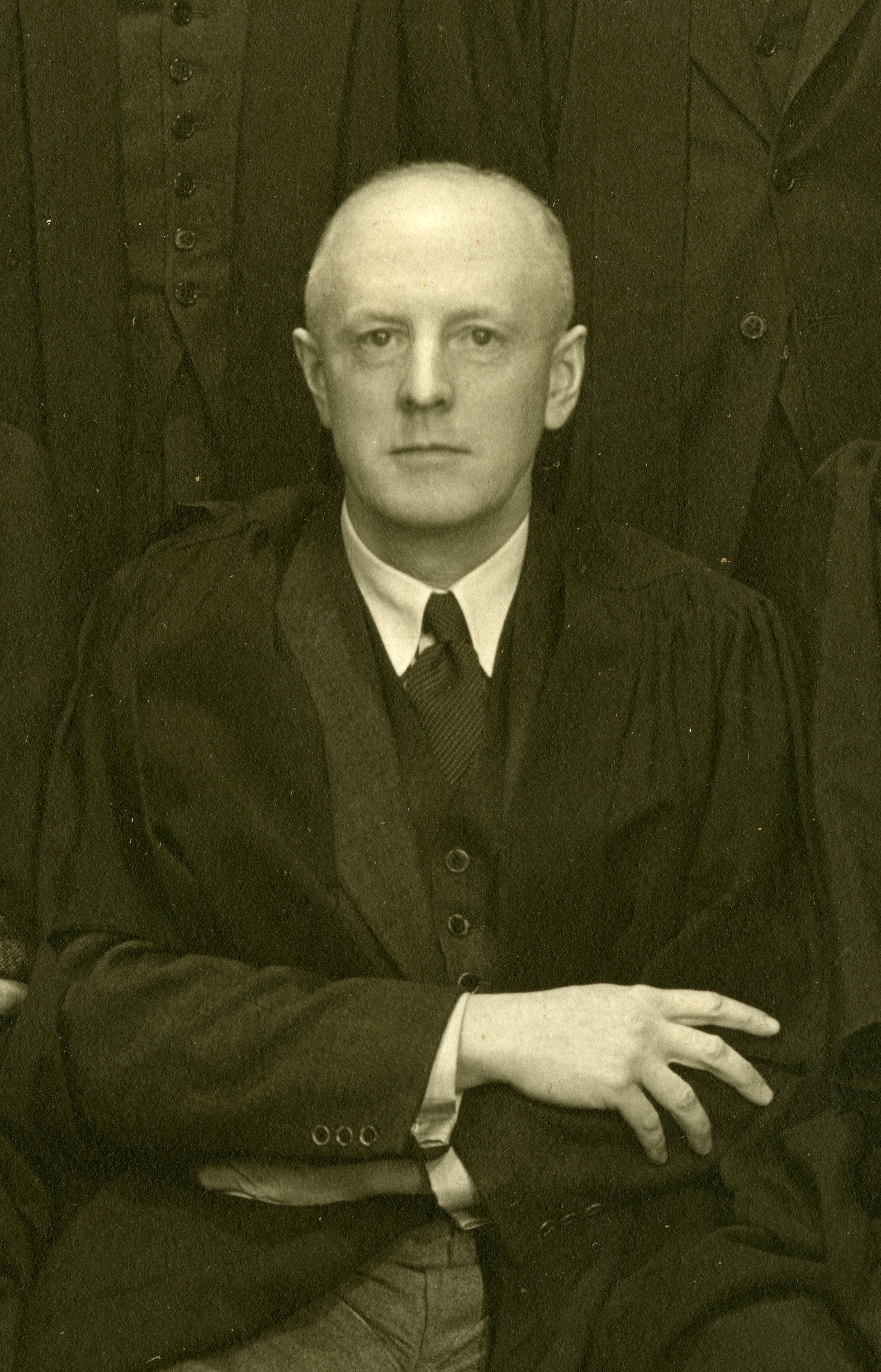The Regina Manifesto was the founding policy document of the Co-operative Commonwealth Federation (CCF). Written in 1933, the 14-point policy statement called for eradicating capitalism and adopting socialist economic and social policies in a democratic state.

Background
In 1932, at the height of the Great Depression, a group of socialist intellectuals from the League for Social Reconstruction met in Calgary with farm group leaders and members of Parliament allied with trade unions. They believed the Depression proved that Canada’s political and economic system worked well for the wealthy elite, but not for farmers, workers and the middle class. Seeking positive change for Canadians, they formed a new political party — the Co-operative Commonwealth Federation (CCF).
In July 1933, the party met in Regina for its first convention and approved the manifesto. (The document’s principal author was Frank Underhill, founding president of the League for Social Reconstruction.) The manifesto stated that the capitalist system was unjust and inhumane; it concentrated power and wealth in a small elite while leaving most people in poverty. The CCF believed that replacing capitalism with socialism would end class differences and allow more people to fulfill their potential.
The Manifesto
The manifesto’s 14 points detailed how the CCF would bring about this more equitable state. If elected to govern, the party would:
- institute government-controlled economic planning;
- assert greater control of banking through the socialization of finance;
- establish state ownership of transportation, communications and electric power companies;
- create agriculture programs to stabilize prices and production;
- increase the regulation of international trade;
- create co-operative institutions to help farmers buy what they need at fair prices;
- write a new labour code to give workers more power to determine working conditions, as well as to provide insurance for work-related injuries (see Workers’ Compensation);
- provide free medical coverage to Canadians with government-run health care;
- amend the Constitution to abolish the Senate and to give the federal government more control over national economic development;
- reorient external relations to promote peace and disarmament;
- establish fairer tax policies;
- amend the Criminal Code and rewrite immigration laws to allow more freedom of expression and equal treatment before the law;
- make the social justice system fairer to all;
- implement an emergency program of social spending to address the immediate challenges of the Depression.
Legacy
Many CCF candidates were elected both federally and provincially. The CCF formed Saskatchewan’s government from 1944 to 1964, with Tommy Douglas serving as premier until 1961.
In 1956, the CCF replaced the Regina Manifesto with the Winnipeg Declaration. The new document advocated social democracy and Keynesian economics instead of socialism. By the end of the 1960s, many of the Regina Manifesto’s proposals, such as medicare, workers’ compensation and peacekeeping, had been implemented.
In 1961, the CCF merged with the Canadian Labour Congress (CLC) to form the New Democratic Party (NDP), with Douglas as its first leader.

 Share on Facebook
Share on Facebook Share on X
Share on X Share by Email
Share by Email Share on Google Classroom
Share on Google Classroom








